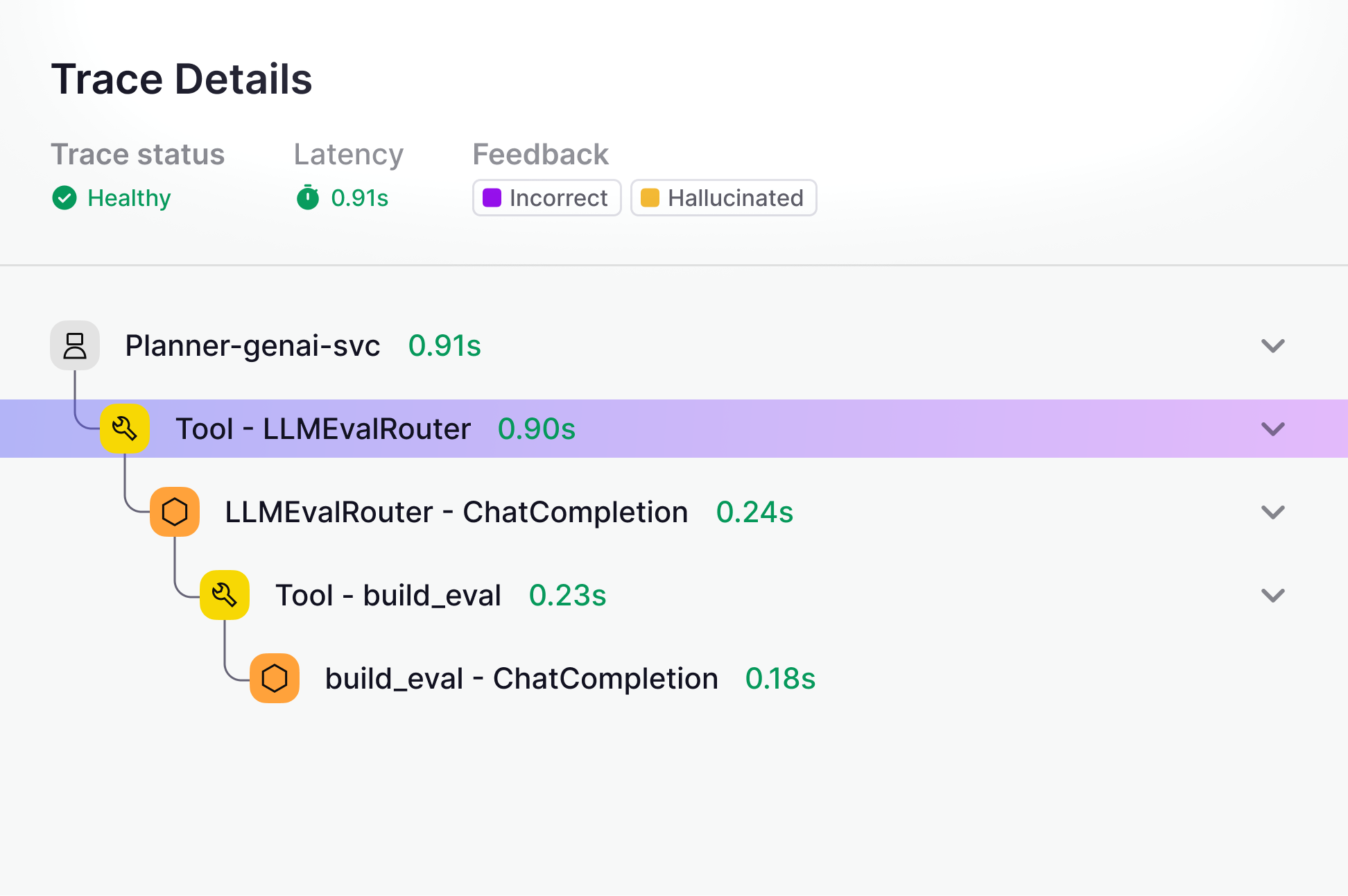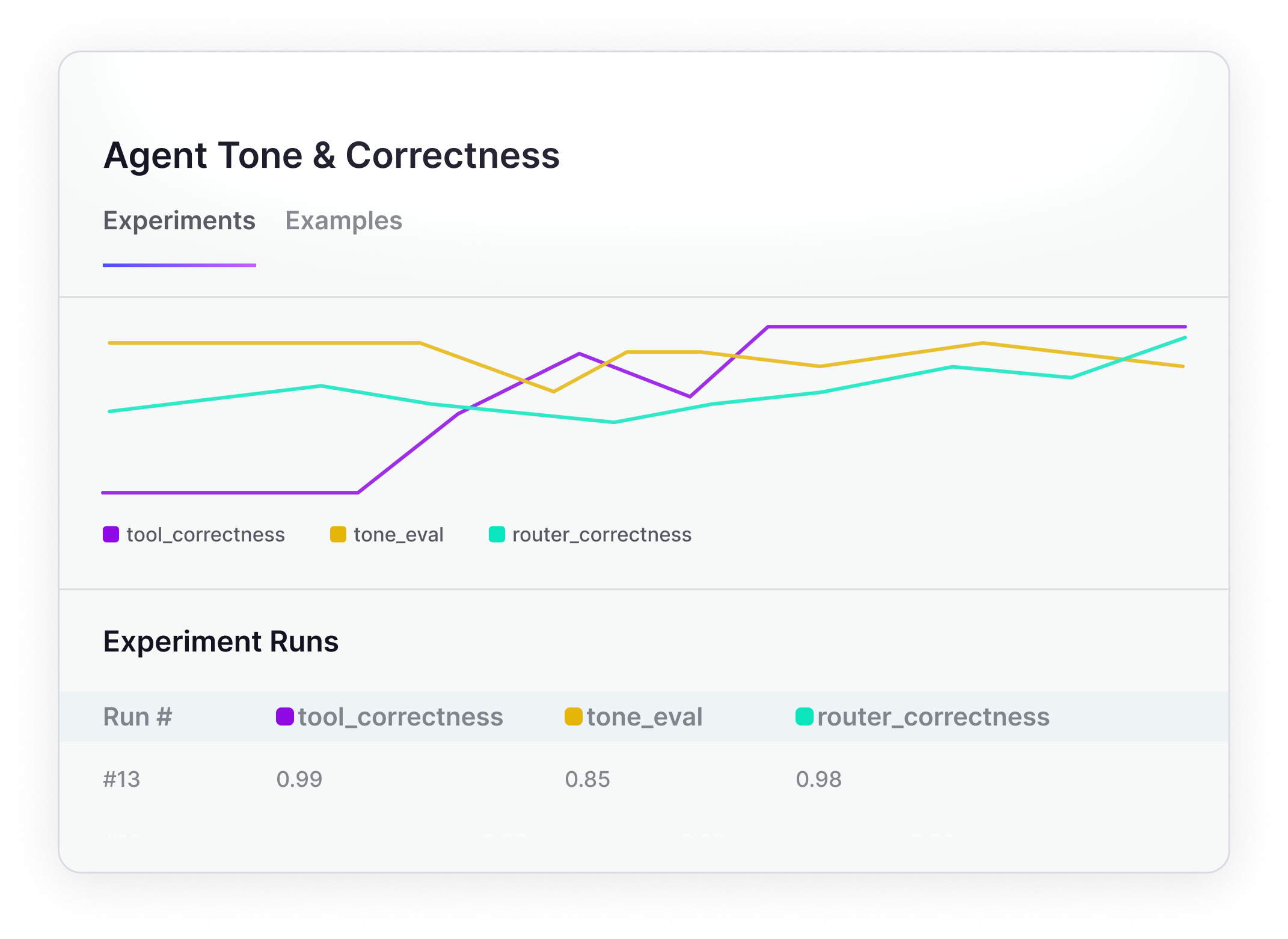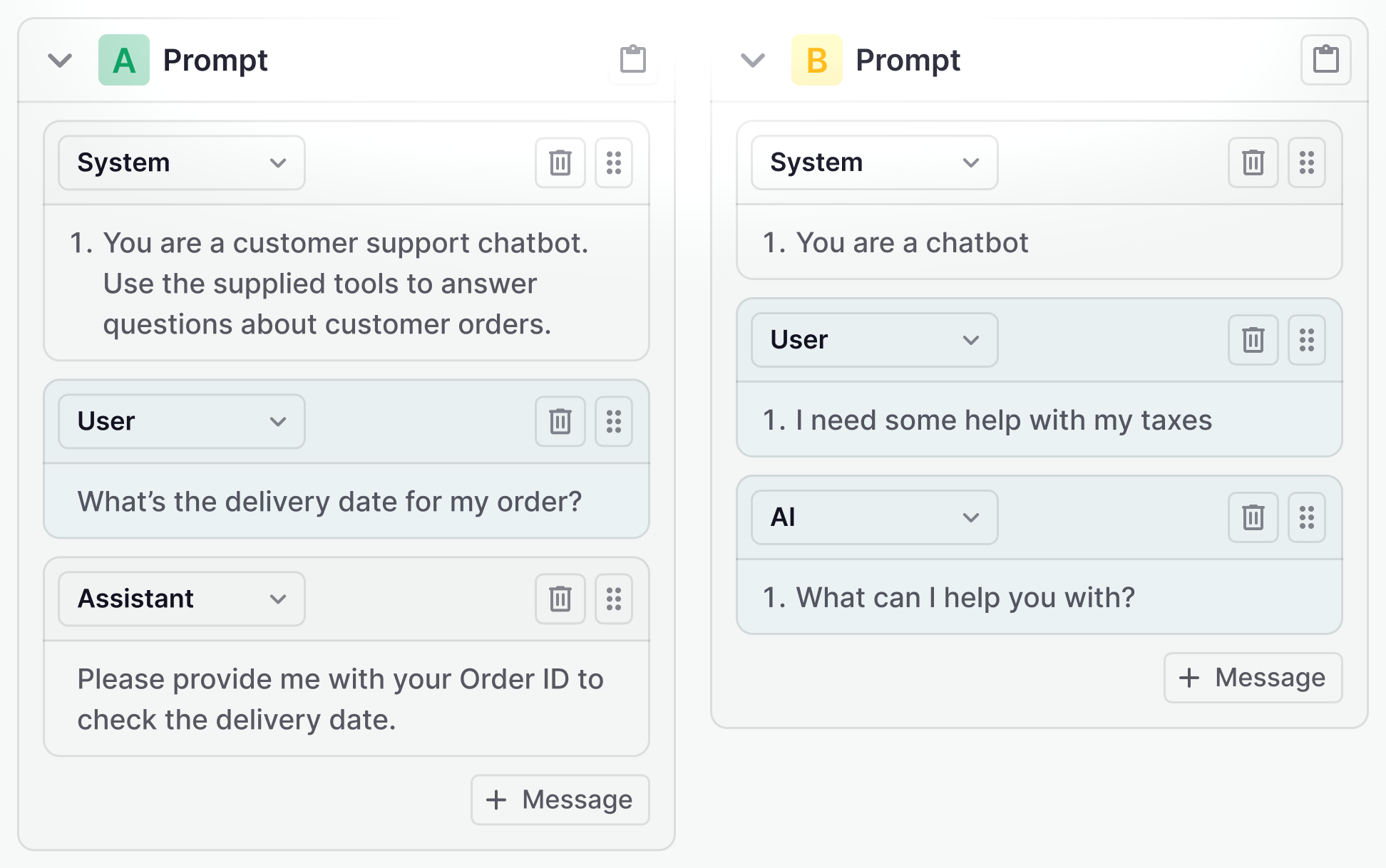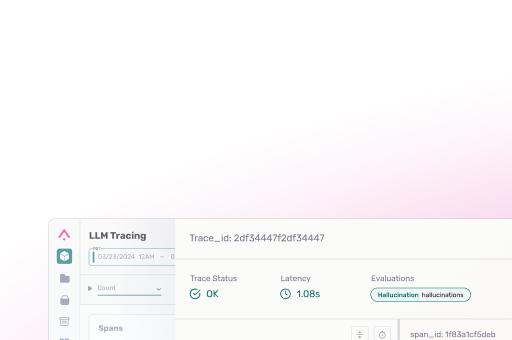For product managers, that means success depends on understanding, not assumption. Arize AX gives product managers the visibility and tools to understand how AI performs and guide it toward better outcomes.
Move fast, evaluate confidently.
Arize helps AI product managers to iterate faster and ship trusted AI that works.
Why AI PM workflows are different
AI products don’t behave the same way twice, even when the inputs look identical.
The AI PM Workflow
TRAINING DATA
Build a strong foundation
Build a strong foundation with prompts and golden data that help you explore, test, and improve your AI from day one.
- Create datasets directly from agent conversations, prompts, or spreadsheets
- Generate and annotate data in context – no-code required
- Explore, augment, and visualize agent behavior before shipping

Evaluation
Define success with evals
Evals are the answer for measurable, repeatable definitions of quality — accuracy, reasoning, and safety become metrics you can track.
- Author evals directly in the platform (with help from Alyx as well)
- Score models and prompts across datasets, use cases, prompt versions
- Compare results side by side to spot regressions early

Production Monitoring
Learn from real-world usage patterns
Shipping an AI feature is just the beginning. Arize AX lets you see how it behaves in production. Trace model inputs, user interactions, and frustration in real-time.
- Identity changes in prompt responses before they impact users
- Visualize eval scores over time to track quality trends
- Drill down into problematic samples and debug with Alyx co-pilot
- Continuously evaluate model consistency and reliability in live environments

Prompt & Eval IDE
Collaborate with stakeholders through shared evals
The best AI teams speak a common language. That language is evals.
Product managers, engineers, and stakeholders can work side by side in one shared environment
- Co-create eval criteria inside shared projects
- Annotate, label, and iterate together on samples
- Set up custom dashboards and monitors that connect to product KPIs



